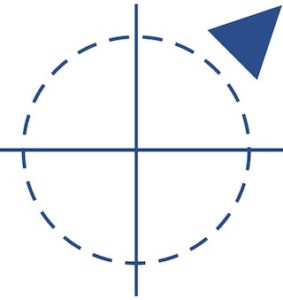What Is Strategic Planning?
 What is strategic planning? Well … for one thing, it’s perhaps the most misused phrase in business!
What is strategic planning? Well … for one thing, it’s perhaps the most misused phrase in business!
Let’s start with what strategy is. On second thought, let’s start with what strategy is NOT!
It’s not a budget.
It’s not a fat document.
It’s not that thing you do every November.
It’s not a mystical chant.
And, my favorite, it’s not “executing well!” Executing what?!
Strategy identifies why people will buy from you versus your competition. Where will you compete, and how will you win? (See https://toddordal.com/must-know-critical-elements-strategy/)
Most “strategic planning” meetings haven’t much to do with strategy. They’re about budgets and action plans, and they’re terribly important! But they don’t answer or reconsider what a company’s strategy is. The participants assume that they already have one, though they cannot most often succinctly tell someone what it is. Quick … in two or three sentences: What’s yours?
Planning is tactical. Hopefully the plans support the strategy, but a bunch of tactical plans (once again, VERY important!) bundled into a document don’t add up to a strategy any more than a pile of lumber is a house.
If you searched for the term “strategic planning” on the web and ended up reading this post, I suspect you need one of three things: (1) You cannot clearly articulate your strategy and need help crafting one, (2) you’re holding your annual “strategic planning meeting” (it’s not!) and don’t know what to do during those three days, or (3) you’re a CEO and believe that you alone are supposed to divine a strategy for your company and are mystified about how to do so.
How do you craft a strategy? There are three requirements:
- You must have a process.
- Whoever owns the results must craft it (usually facilitated but with the CEO and senior team).
- You must be willing to do the hard work.
There are many processes for crafting strategy; I use several. But you’re really facilitating a conversation with your team to think about the future (using as much logic and evidence as you can) and to identify how you’ll prosper in that environment. It’s about making decisions, not theory.
If you cannot quickly and succinctly explain what your strategy is, gather the team and develop an answer.
Annual planning sessions are necessary, as are budgets, but don’t confuse them with strategy.

coaches CEOs to higher levels of success. He is a former CEO and has led teams as large as 7,000 people. Todd is the author of, Never Kick a Cow Chip On A Hot Day: Real Lessons for Real CEOs and Those Who Want To Be (Morgan James Publishing).
Connect with Todd on LinkedIn, Twitter, call 303-527-0417 or email [email protected].

Lisa Hamaker
5:15 am August 21, 2018Thanks for another great overview and motivational ideas Todd. I actually call phase 1 strategic organization – based off other ideas from you. Folks around me at seems to resonate with the idea and it lets us relax into a longer process that (I think) yields more useful results.
Todd Ordal
6:49 am August 22, 2018Thanks, Lisa!